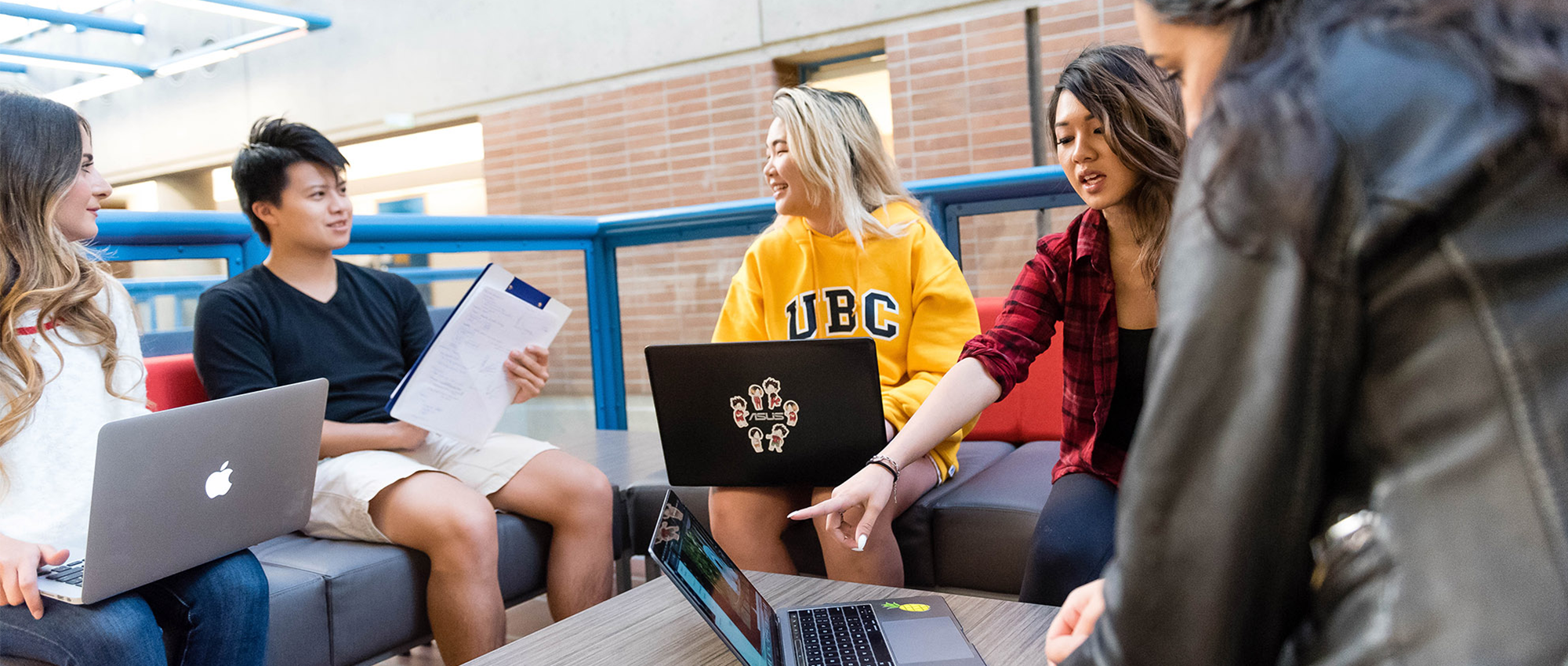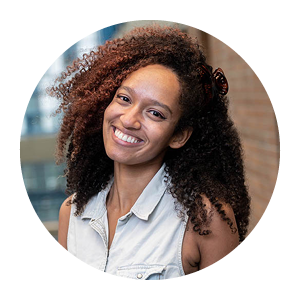

UBC Psychology students meeting in the Douglas T. Kenny Building.
The Diversity Mentorship Program empowers students and creates a sense of inclusion.
Applying for graduate school can be overwhelming, but for students from disadvantaged backgrounds it presents a number of new obstacles and unknowns. They have less access to opportunities, mentorship, and peer support; all important aspects in applying for graduate studies and in navigating academia and research environments.
To address this, UBC’s Department of Psychology is pairing graduate students and postdoctoral fellows with underrepresented, diverse or marginalized students to give them academic and social support—and a connection to the psychology community.


Nancy Sin
UBC Psychology Assistant Professor Dr. Nancy Sin (she, her, hers) is the co-creator of the department’s Diversity Mentorship Program. While the COVID-19 pandemic created isolation and barriers, Dr. Sin saw it as an opportunity to create student connections and help prepare prospective graduate students for success.
Dr. Sin, who is a health psychologist and a member of the department’s equity committee, says, “Some students who go on to graduate school feel isolated within a community where few others look like them or share their experiences. Diversifying the graduate-student body is necessary for diversifying the field of psychology.”
“It’s important to have a sense of belonging. Many applicants said that they often felt like they didn't belong in an academic environment or that they didn't see other people that were like them in terms of their race, socioeconomic status, or their gender identity.”
When the program launched in March 2021, it received over 200 applications from students around the world. Narrowing it down to 101 mentees proved difficult for the project team; the quality and diversity of the applications was impressive. The program’s 34 mentors were each matched with up to three students.
The program officially kicked off in June 2021 with a series of virtual events, including workshops, guest speakers, group discussions, and one-on-one mentor meetings. The mentorship program committee also developed a course to prepare and train the mentors to work with students from diverse backgrounds and to understand the issues the students face.


Lucy De Souza
Lucy De Souza (she, her, hers), a graduate student in the department of psychology, helped develop the mentor course and led the training sessions. Topics in the course included the underrepresentation of racial minorities in psychology, the barriers and challenges underrepresented students face in academia, and how to mentor these students.
“Our mentors come from different backgrounds and have different experiences. A big part of the program was preparing the mentors and making sure we were all on the same page,” says De Souza, who is a member of the department’s equity committee. “Many mentors already understood the foundations of privilege and power but might not have applied it to the field of psychology—or how to mentor students from marginalized backgrounds.”
“Our mentors come from different backgrounds and have different experiences—many already understood the foundations of privilege and power but might not have applied it to the field of psychology—or how to mentor students from marginalized backgrounds.”
Dr. Anja-Xiaoxing Cui (she, her, hers), a UBC postdoctoral research fellow in music and psychology, saw the program as an opportunity to mentor from a diversity-specific perspective while learning from the students in the program.
“Mentoring other diverse students is important and personally very rewarding,” says Dr. Cui. “And as I become more removed from being an actual student, being a mentor is a great way to stay in touch with what it feels like to be a student. This is useful when I design courses.”
Lucy De Souza’s own experience taking part in a mentorship program helped her successfully apply to graduate school—and ultimately led to her involvement in the department’s diversity mentorship program.
“Applying to graduate school can be a game. You have to know what schools to apply for, who to contact—and even the customs and culture. An online application doesn’t tell you how to contact professors, what research experience you should have, or how to frame your experience to match it with a school,” says De Souza.
She adds, “People who have this knowledge might have parents who have experienced it themselves or they have been mentored by people in their lives. This program provides those resources to give people an opportunity to enhance their application, given that they might not have had those privileges or experiences before.”
Julia Nakamura (she, her, hers) , a graduate student in the department of psychology, became a mentor as a way to give back. Nakamura credits being mentored as an undergraduate student for her path to graduate studies at UBC.
“I wouldn’t have ended up in graduate school if it wasn’t for Dr. Kate Kuhlman! She mentored me on research, grad school applications, a thesis project, data collection, academic writing, and so much more.”
Nakamura adds, “It has been an incredible experience to pay it forward. I joined this program with the goal of contributing to equity in academia and seeing someone succeed on their graduate school application journey has been exceptionally rewarding. I hope to mentor many more students in the future!”
Yesenia Garcia, a mentee in the program, was paired with Julia. She holds a master’s degree in Social Work from the University of California, Los Angeles and had applied to PhD programs twice. Recently Garcia received multiple acceptance offers and is joining the PhD program at the University of Southern California.
“Not only did the program provide networking opportunities and information about the application process, but it also linked me to a mentor that guided me through the process.”
“The UBC Psychology Diversity Mentorship Program was essential to gaining the tools I needed to apply to graduate programs successfully this year,” says Garcia. “Not only did the program provide networking opportunities and information about the application process, but it also linked me to a mentor that guided me through the process. I hope programs like these continue to support minority students as mentorship is essential to diversifying academia and providing opportunities to minority students like me. A big shout out to my mentor Julia who was patient and provided me with a ton of support! Thank you.”
While launching this program signals that the Department of Psychology is committed to supporting students from diverse backgrounds, there is still work to be done to further the department’s commitment to embedding equity, diversity, and inclusion into the culture of its community. To achieve this, the department’s equity committee established a task force to develop new policies and practices for a more equitable, diverse and inclusive work and study environment. The task force published a report with a number of recommendations for increasing faculty diversity, creating an inclusive department, and monitoring the progress of the recommendations for accountability.
The response for the mentorship program has been overwhelmingly positive, both from the mentees and the mentors. Not only does the program provide a safe space where they can discuss issues about discrimination in academia openly, it creates a sense of belonging and inclusion.
“I’m proud that this program provides a place for mentors and mentees to reflect on the different ways that academia poses challenges for people with regards to ableism, race, ethnicity, religion, sexual orientation, gender identity, and other identities.”
Learn more
People
34 Mentors
101 Mentees
Bana Ashour
Rachele Benjamin
Benjamin Cheung
Lucy De Souza
Summer Feng
Ellen Jopling
Kristin Laurin (Committee Chair)
Lillian May
Nancy Sin (Program Lead)
The program received support from the Department of Psychology at UBC and the UBC Anti-Racism Initiatives Fund


